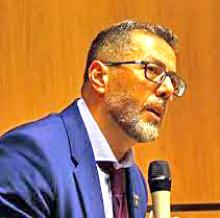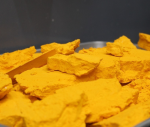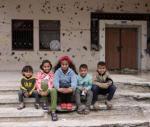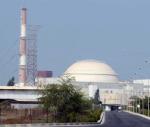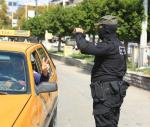You are here
Palestine bleeds: Execution of autistic man is not an exception but the norm
Jun 09,2020 - Last updated at Jun 09,2020
A 32-year-old man with the mental age of an eight-year-old child was executed by Israeli forces on May 30, while crouching behind his teacher near his special seeds school in the Old City of Jerusalem.
The cold-blooded murder of Iyad Al Hallaq might not have received much attention if it were not for the fact that it took place five days following the similarly heartbreaking murder of a 46-year-old black man, George Floyd, in Minneapolis, at the hands of American police.
The two crimes converge, not only in their repugnancy and the moral decadence of their perpetrators, but also because countless American police officers have been trained in Israel, by the very Israeli “security forces” that killed Al Hallaq. The practice of killing civilians, with efficiency and callousness, is now a burgeoning market. Israel is the biggest contributor to this market; the US is the world’s largest client.
When thousands of people rushed to the streets in Palestine, including hundreds of Palestinian and Israeli Jewish activists in Jerusalem, chanting “Justice for Iyad, justice for George”, their cry for justice was a spontaneous and heartfelt reaction to injustice so great, so blatant.
Al Hallaq’s story might appear particularly unique, as the “suspected terrorist” was killed while merely walking in King Faisal Street in Jerusalem, on his way to take out the trash. He was afraid of soldiers and terrified of blood.
“He was also afraid of the armed police officers who stood along the route to the special needs center he went to, where he participated in a vocational training program,” the Israeli newspaper, Haaretz, reported.
Al Hallaq’s many fears, which may have appeared exaggerated by his family, turned out to be true. Even an autistic person in Palestine is not safe from the vengeance of soldiers.
But Iyad Al Hallaq did not need to die for Israel to maintain its pathological sense of “security”. The fact that he was already shot and wounded, and found bleeding in a roofless garbage room in Jerusalem’s Old City, was not enough to spare him that horrific fate. The fact that the man screamed in agony while hiding behind his caregiver, who pleaded with the soldiers, begging them to stop puncturing his already bleeding body with more bullets, was also not enough.
Still, the soldiers stepped forward, and from a very close range, fired three bullets into Al Hallaq’s midsection as he lay wounded on his back. Instantly, the young man, the “apple of the eyes of his parents”, ceased breathing.
“He was our mother’s love, her entire life,” Iyad’s sister, Diana said in an interview with +972 magazine. “She would hold his hand like he was a baby, and he would walk with her to the market, or the mosque or the clothing store. He was like her shadow. She worried about him and whether other kids would bother or hurt him.”
Caught off guard by the grisly nature of the murder and the mental state of the victim, Israel’s spin doctors moved quickly to contain the damage, initially spreading lies that Al Hallaq was carrying a toy gun at the time of the shooting, then backing off, promising an investigation.
But what is there to investigate? In recent years, the Israeli army has upgraded its code of conduct, adopting a shoot-to-kill policy of any Palestinian they suspect of attempting to harm Israeli occupation forces, even when the alleged Palestinian ‘“attacker” is no longer posing a threat.
In the case of Gaza, where protesters are separated from Israeli snipers by barbed wire and nearly a mile-long empty space, the Israeli military issued orders, as of June 2019, to shoot and kill “key instigators” of the mass protests even while “at rest”. Hundreds of people have been killed in Gaza’s Great March of Return in this way, and the “key instigators” included medics, journalists, young boys and girls.
Indeed, the killing of Palestinian civilians is a regular occurrence. It is the devastating routine with which Palestinians have been forced to co-exist for many years and for which Israel was never ever held accountable.
Only one day before al-Hallaq was murdered, Fadi Samara Qaad, 37, was killed by Israeli occupation soldiers while driving his car near the Palestinian village of Nabi Saleh, west of Ramallah.
The Israeli military immediately claimed that Qaad “tried to ram his car into a group of soldiers” before they opened fire, killing him on the spot.
This is the go-to Israeli military pretense that is often offered when a Palestinian driver is shot and killed by Israeli soldiers. Otherwise, the Palestinian victim, whether a man, a woman, or a child, is often accused of carrying a “sharp object”.
Al Hallaq’s mental disability might have spared him, in the eyes of some, from being that archetypical “terrorist”, although the Israeli army immediately raided his house, looking for “evidence” that would implicate him and be useful in their sinister propaganda.
In the case of Qaad, a Palestinian worker, on his way to join his wife in a nearby town to celebrate the Muslim Eid holiday, the Israeli forces statement suffices, no questions asked.
This is the same stifling logic that has prevailed in Palestine for so many years, and counting. Children are killed for throwing stones at men with guns, who have invaded their homes and villages; pregnant women are gunned down at Israeli forces checkpoints; men with amputated legs on wheelchairs shot by snipers while protesting and demanding their freedom.
All of this is taking place in the complete absence of any promising political horizon. Even the protracted and ultimately useless “peace process” has been halted in favour of greater American backing of Israel and of the Israeli government’s mad rush to expand illegal Jewish settlements.
To secure his colonial accomplishments — read: land theft — Israel’s Prime Minister, Benjamin Netanyahu, is about to reveal the crown jewel of his legacy, as he prepares for the expansion of Israel’s borders through the annexation of yet more Palestinian land.
Inspired by the common struggle that ties them with their African-American brethren, Palestinians are now left only with their cries for justice: Palestinian lives matter, hoping, for once, the world may hear and echo their screams and, perhaps, do something.
Ramzy Baroud is a journalist and the editor of The Palestine Chronicle. He is the author of five books. His latest is “These Chains Will Be Broken: Palestinian Stories of Struggle and Defiance in Israeli Prisons” (Clarity Press, Atlanta). Dr Baroud is a non-resident senior research fellow at the Center for Islam and Global Affairs (CIGA), Istanbul Zaim University (IZU). His website is www.ramzybaroud.net

